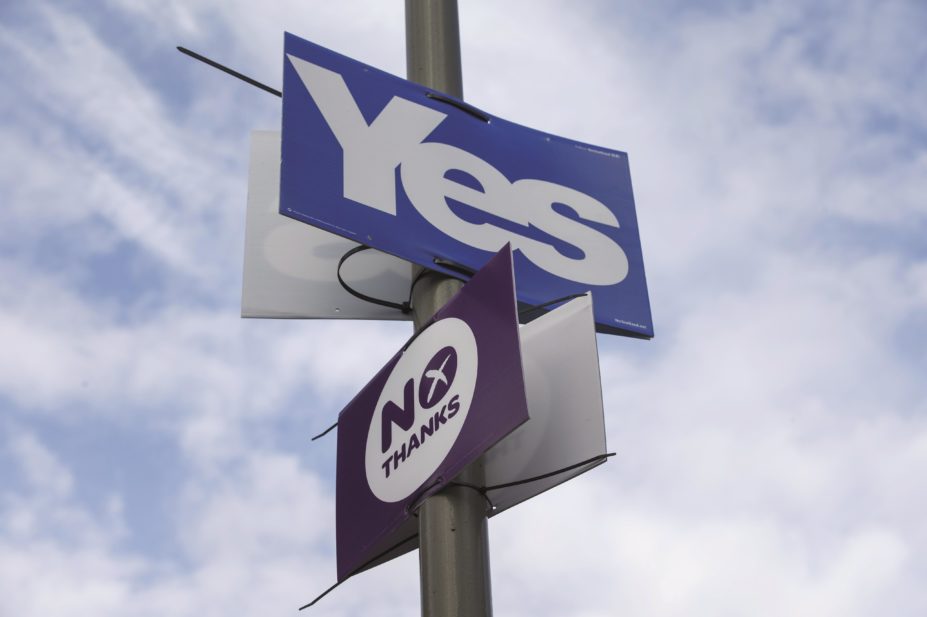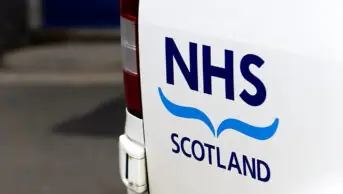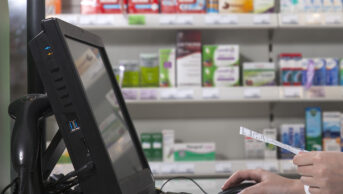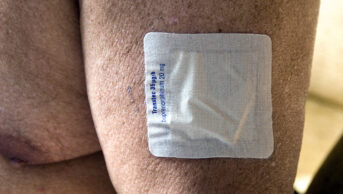
Robert Perry / Rex Features
On 18 September 2014, the people of Scotland will decide whether to become an independent country or remain a part of the United Kingdom. It is a complex situation with many uncertainties, and proponents for both outcomes are unable to give the definitive, detailed answers that many people want before making their vote.
The results of the referendum could be pretty significant for pharmacy. If Scotland votes for independence, the most important implications would be for powers currently “reserved”, in other words, under the control of the UK Parliament. Many powers relating to health are already devolved to the Scottish Parliament so the impact of independence in these areas is likely to be smaller (see table).
| Devolved to the Scottish Parliament | Reserved by the UK Parliament |
|---|---|
This table shows the powers pertaining to pharmacy that are currently devolved to the Scottish Parliament and those that are reserved by the UK Parliament. | |
|
|
Health service
Possibly the biggest influence on pharmacists’ every day practice is the health service in which they work. Responsibility for setting health policy was devolved to the Scottish Parliament under the Scotland Act 1988, so most major decisions about the running of the NHS in Scotland are already made in Scotland.
Contrary to popular belief, the NHS has never been a UK-wide service. It was originally established by the National Health Service Act 1946, which created the service in England and Wales, and the National Health Service (Scotland) Act 1947, which created the service in Scotland. Accountability for the two services was set up differently too, with NHS England and Wales falling to the Secretary of State for Health and NHS Scotland to the Secretary of State for Scotland. However, with both posts being within the UK government, it was not until devolution in 1999 that a true divergence of the separate NHS services was really seen.
This divergence is something that the Scottish government points out in “Scotland’s future”, its White Paper on independence[1]
. “Scotland has taken a very different approach to health and social care from that taken by Westminster governments over the years. We have maintained a commitment to the NHS as a public service,” it says, adding “there is no competition, or internal market, in Scotland”.
Last year, the then chief executive of NHS Scotland Derek Feeley summed up the difference in approach between the two health services as a focus on “integration and collaboration” in NHS Scotland and on “competition and choice” in NHS England.
It is an important difference, not just ideologically, but because it has an impact on policy direction, service provision and organisation. With health policy already devolved to the Scottish Parliament, it is unlikely that this approach would change much in an independent Scotland.
However, there are other factors, which might force changes to the health service. Finance has probably been the hottest topic in the independence debate. It is not clear whether NHS funding in Scotland could continue at the same level in an independent Scotland. The “yes” campaign points to potential savings by reducing spending on defence and nuclear weapons, plus income from North Sea oil reserves and the potential of renewable energy. Meanwhile, the “no” campaign argues that Scotland gets a good deal by being part of the UK because spending on health in Scotland is around £200 per person higher than the UK average, a gap that would have to be bridged through significant spending cuts or tax increases.
There is also uncertainty over whether ongoing partial privatisation of the NHS in England will reduce public services funding for Scotland, via its potential impact on the Barnett Formula, which ensures that total public expenditure allocation in Scotland mirrors spending in England.
The place of pharmacy
How each profession works within the NHS is strongly influenced by the government’s overall health policy ambitions. In Scotland, pharmacy’s recent professional direction has been determined by two key Scottish government frameworks: in 2002 by ‘The Right Medicine’[2] and in 2013 by ‘Prescription for Excellence’[3]
. Both strategies are about delivering innovative NHS pharmaceutical care.
These overarching strategies determine day-to-day practice for pharmacists through a variety of mechanisms, not least the community pharmacy contract. The Scottish community pharmacy contract is now significantly different from the English contract. It is built around four core services (minor ailments, acute medication, chronic medication and public health) with a shift from funding by dispensing volume to service provision. In an independent Scotland, these contractual arrangements, set out in the NHS Pharmaceutical Services (Scotland) regulations, would continue. The Scottish government’s White Paper notes: “The funding and terms and conditions for General Dental Services, General Ophthalmic Services and Community Pharmacy are already devolved and fully negotiated in Scotland. These arrangements will not change.”
The NHS legislation that covers the community pharmacy contract in Scotland also includes control of entry to the NHS pharmaceutical list. It was amended in 2014 so that it is now quite different to its English counterpart. A further difference is the way in which dispensing GP practices operate: in Scotland, GP practices can only dispense if instructed to do so by the local NHS board. Since the legislation is already determined in Scotland, none of this is likely to change in the event of independence.
Similarly, pay structures for pharmacists, who are employees of NHS Scotland, are devolved. The Scottish Government White Paper notes: “Arrangements for reviewing NHS pay are already devolved but NHS Scotland currently operates within UK structures and modifies UK agreements to reflect Scottish circumstances where necessary. With independence, we will review the machinery for pay determination in partnership, including the potential for improvement across the wider Scottish public sector.”
Professional regulation
Regulation of health professionals is a reserved matter, so the General Pharmaceutical Council (GPhC) currently regulates pharmacists across the UK.
The GPhC and its functions were established by legislation (the Pharmacy Order 2010) approved by the UK and Scottish Parliaments. While the regulation of pharmacists and pharmacy premises is reserved to the UK Parliament, the regulation of pharmacy technicians is devolved because technicians became a regulated profession after the establishment of the Scottish Parliament.
“If Scotland votes to become an independent country, it would be for the Scottish government to decide how the pharmacy profession should be regulated,” says a spokesperson for the GPhC. “We would wish to work with them to explore how future arrangements can continue to maintain patient safety and public confidence in the profession,” he adds.
The Scottish government has said that it plans to work with existing professional regulatory bodies. Its White Paper notes that Scotland is already responsible for the regulation of some health professions and says that after independence, it will become responsible for all regulation. It states: “We will seek to co-operate with Westminster, and the devolved administrations, to ensure that health professional regulation is maintained in the best interests of patient safety and the consistent treatment of healthcare professionals. We will also maintain the existing professional healthcare regulatory bodies, which are funded by fees from registrants, and will continue to operate in Scotland after independence.”
Medicines legislation
The Medicines Act 1968 is the legal framework under which all UK pharmacists work. It defines categories of medicines as prescription-only, pharmacy and general sales list, and describes the restrictions that apply to each category. The legal framework is further determined by the Misuse of Drugs Act 1971, which defines the laws that apply to controlled drugs.
These Acts are both reserved by the UK Parliament. It is likely that this type of existing legislation would be mapped across to form initial legislation in an independent Scotland. It could then be subsequently amended to reflect the particular circumstances of Scotland.
David Reissner, senior healthcare partner at law firm Charles Russell, says that a new Parliament of an independent Scotland would effectively be at “ground zero” and would have to decide what it wants its laws to be. “That is a very big task given that the law we have now goes back to the Act of Union in 1707 and maybe even before that since Scottish law precedes this. Presumably there would be some Acts of establishment, the effect of which would be for the Scottish Parliament to adopt existing UK legislation and for Westminster to release its jurisdiction over Scotland.”
This assumption is reflected in the Scottish government’s White Paper, which discusses the role of the Medicines and Healthcare products Agency (MHRA) in an independent Scotland. It states: “The MHRA takes forward reserved issues around the licensing, safety and efficacy of medicines and functions on a UK-wide basis. The Scottish government plans to continue using the services of MHRA in an independent Scotland, unless and until the Scottish Parliament decided to make changes in this area.”
Medicines and money
The pricing of medicines is a complex matter. Scotland has its own Drug Tariff that sets NHS prices for the prescribing, dispensing and reimbursement of medicines and appliances in primary care. However, the pricing of branded medicines — set through the Pharmaceutical Price Regulation Scheme — is determined at a UK level.
In its White Paper, the Scottish government states that independence will provide it with an opportunity to negotiate its own pricing arrangements directly and in partnership with the pharmaceutical industry “with a view to securing the best possible deal for both NHS Scotland and Scottish patients”.
The situation is further complicated by ongoing discussions across the UK to introduce a new value-based pricing scheme for branded medicines. The aim of the scheme is to create a closer link between the price paid by the NHS and the value a medicine delivers. Last year, the Scottish Parliament’s Health and Sport Committee published a report on access to new medicines, which stated: “Clarity has yet to be provided by both the Scottish and UK governments regarding which parts of value-based pricing are reserved and devolved.”
If independence leads to different prices in Scotland and England, particularly if there is no currency union, this could result in new markets for parallel imports.
Education and research
Education is devolved to the Scottish Parliament. Although this has resulted in differences to undergraduate pharmacy students (not least free higher education for Scottish residents), the core content of the pharmacy course is the same across the UK because it is determined by the General Pharmaceutical Council (GPhC). In an independent Scotland, the curriculum would have to be agreed within any new arrangements for professional regulation.
However, for many universities, it is research, not education, that is at the forefront of the independence debate. Donald Cairns, head of the school of pharmacy and life sciences at Robert Gordon University, says that the biggest issue for universities is the uncertainty over research funding. “At the moment, most medical research funding comes from the UK government or UK charities. It is not clear if this funding would be continued in the event of a ‘yes’ vote.” He points out that Scotland currently punches above its weight in terms of attracting research funding into its universities.
Other matters
The impact of independence on pharmacy does not end with medicines. As with many other professions, there are other considerations that will affect pharmacists’ working lives, for example, business arrangements, pensions and employment law.
Then there is the question of Europe. EU legislation has a significant impact on pharmacy in the UK, for example, medicines approvals and legislation around falsified medicines. UK Prime Minister David Cameron has promised a referendum on whether the UK should remain part of the European Union if his party stays in power after the next general election. But the Scottish government wants Scotland to continue to be part of the EU.
These implications are too far-reaching to explore in depth here. In any case, the impact on pharmacy is only one small factor in an individual Scottish pharmacist’s decision whether to vote for or against independence.
What do you think?
Matt Barclay, pharmacy services manager, Community Pharmacy Scotland:
“Pharmacy is devolved through our own NHS Act so the actual mechanics of delivery and direction around delivery wouldn’t change. Pharmacy has a positive profile in Scotland both politically and with the public so I would hope that investment could be maintained at least in any independent scenario.
“It is when you get down to the professional and legislative reserved matters like regulation, setting of drug prices (PPRS) and the Medicines Act 1968 that you wonder what the impact will be. Would anyone in Scotland be willing to rewrite a new Medicines Act for example or would a reciprocal arrangement have to be made? Then you have employment law, tax, workers’ rights, pensions and so on.”
Alex MacKinnon, director for Scotland, Royal Pharmaceutical Society (RPS):
“Since devolution, we have had so much support from all the political parties and individual politicians for developing the role of pharmacists and making better use of pharmacists’ skills. Successive administrations of the Scottish Parliament have supported the development of the clinical role of pharmacists.
“Whichever way the vote goes, I do not see that this would change the positive direction of travel for pharmacy in Scotland. The RPS is committed to advocacy for the pharmacy profession and will continue to lobby for pharmacists whether Scotland is independent or not, so for us it will be business as usual.”
MacKinnon’s position is backed up by a consensus statement of the Scottish Pharmacy Board, endorsed by the RPS Assembly in July. It states that in the event of Scotland becoming an independent country, the Scottish Pharmacy Board will continue to function as normal ensuring pharmacists in Scotland continue to receive the support of a professional body.
References
[1] The Scottish Government. Scotland’s future: your guide to an independent Scotland. Edinburgh: The Scottish Government; 2013.
[2] The Scottish Government. The right medicine: a strategy for pharmaceutical care in Scotland. Scottish Executive; 2006.
[3] The Scottish Government. Prescription for excellence: A vision and action plan for the right pharmaceutical care through integrated partnerships and innovation. The Scottish Government; 2013.


